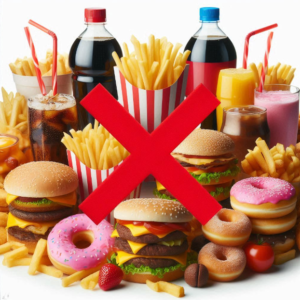Identify the Foods That Negatively Impact Sleep Quality and Lead to Insomnia
A variety of foods can significantly disrupt your sleep patterns, complicating the quest for the restorative rest your body craves. But which specific foods are infamous for diminishing sleep quality? In this comprehensive exploration, we will delve into the most troublesome dietary choices that can instigate insomnia and associated sleep disturbances.
Living with insomnia encompasses not only the difficulty of falling asleep but also the battle to sustain sleep throughout the night. The repercussions of inadequate sleep can leave you feeling utterly drained during the day, severely hindering your focus and productivity. This lack of quality rest can adversely affect your mood, resilience, and overall immunity. Ultimately, it may pave the way for a plethora of health complications and ailments. While various factors contribute to insomnia, your diet plays a pivotal role in this complex equation.
Understand the Impact of Caffeinated Beverages on Sleep Quality
Caffeine, a naturally occurring psychoactive compound prevalent in beloved items like coffee, tea, and numerous energy drinks, can profoundly affect your capacity to fall asleep and maintain restful sleep. As a recognised stimulant, caffeine complicates the initial process of drifting off and disrupts your sleep cycle by inducing awakenings during the night. Additionally, caffeine serves as a diuretic, leading to frequent trips to the restroom at night, further interrupting your sleep. Since caffeine can take several hours to metabolise and clear from your system, it is advisable to refrain from consuming it after midday to promote a more restorative night’s rest. 
Investigate the Connection Between Caffeine Consumption and Anxiety Levels
Another critical factor to assess is the link between caffeine intake and anxiety. Caffeine stimulates the central nervous system, and while many individuals may enjoy a brief energy boost after caffeine consumption, others may experience feelings of restlessness and jitters. This heightened state of anxiety can exacerbate the symptoms of insomnia. Research indicates that those with chronic anxiety frequently experience insomnia symptoms, which include difficulties in both falling asleep and maintaining sleep throughout the night. This creates a vicious cycle of caffeine-induced anxiety that worsens ongoing sleep deprivation.
For individuals grappling with anxiety, monitoring caffeine consumption closely is vital to mitigate additional sleep disturbances. Notably, studies suggest that women generally consume slightly less coffee than men but may experience a more significant rise in blood pressure from caffeine intake. The connection between elevated blood pressure and insomnia offers a compelling argument for eliminating caffeine from your diet.
Identify Caffeinated Foods That Could Disrupt Sleep
You may be surprised to learn that a multitude of foods also contains caffeine. Items such as those incorporating cocoa or chocolate (particularly dark chocolate) possess caffeine due to the presence of the compound theobromine. Additionally, many common over-the-counter pain medications include caffeine as a crucial ingredient. For those contending with insomnia, it is prudent to take such medications before midday and select caffeine-free alternatives later in the day. While moderate caffeine consumption has been linked to various health benefits, it is essential to be mindful of your overall daily intake to avert negative effects like heightened anxiety and disrupted sleep. Consider replacing that late-night cup of cocoa with a soothing malted milk drink instead.
Another intriguing consideration is how genetics may influence individual responses to caffeine. Variations in specific genes can substantially affect how even small quantities of caffeine impact your sleep quality.
Your genetic predisposition to caffeine sensitivity is a significant factor that warrants attention. If you find it challenging to attain restful sleep after consuming even a minimal amount of caffeine, it may be beneficial to explore whether you have a genetic trait that affects your response to this stimulant.
Moreover, if you struggle with insomnia, you might be inclined to consume coffee or energy drinks during the daytime to maintain alertness and focus. Unfortunately, this strategy can backfire, further disrupting your nighttime sleep quality.
If you are experiencing insomnia, it is advisable to completely avoid caffeine during the evening hours or potentially eliminate it altogether from your diet.
Examine the Effects of Spicy Foods on Sleep Quality
While there is no direct relationship between spicy foods and insomnia, these foods can indirectly lead to sleep disturbances. This occurs as they may trigger heartburn and indigestion, both of which are commonly linked to difficulties in falling asleep.
If you are already suffering from heartburn or indigestion, reclining can exacerbate these issues. When you lie down, stomach acid can flow back into the throat, causing discomfort and pain as it irritates the sensitive lining of the oesophagus. Interestingly, consuming spicy foods, such as those seasoned with ginger, chilli, or pepper, can elevate your body temperature. Best practices for sleep hygiene suggest that cooler temperatures are more conducive to quality sleep, rendering anything that raises your body temperature a poor choice for those grappling with insomnia.
Investigate the Potential for Spicy Foods to Cause Nightmares
Anecdotal evidence indicates that consuming spicy foods might affect sleep quality, leading to nightmares and unusual dreams. Although scientific research has yet to confirm this link, there is some evidence suggesting that elevated body temperatures, akin to those experienced during a fever, can result in unsettling dreams. While this connection is tenuous, it may hold some truth. If you enjoy spicy cuisine but find yourself plagued by disturbing dreams, it may be wise to reconsider your evening meal choices!
Considering all the points discussed, if you are facing insomnia, it may be prudent to avoid consuming spicy foods within three hours of bedtime.
Assessing the Impact of High-Fat Foods on Sleep Quality
Imagine this scenario: you’ve enjoyed a fantastic night out, the bars are closing, and you decide to indulge in some scrumptious chips or perhaps a greasy kebab. While such a meal may be tempting, especially after a few drinks, consuming a meal rich in fat close to bedtime is not advisable. Similar to spicy foods, meals high in fats, particularly saturated fats, can obstruct your ability to attain quality sleep.
As you prepare for bed, your digestive system instinctively slows down. Your body is designed to digest food during daylight hours, not while you sleep. Consequently, the deficiency of digestive enzymes and the sluggish nature of digestion at night can induce discomfort. This discomfort is exacerbated by lying down, as gravity does not assist in the movement of food through your digestive system. Therefore, eating high-fat foods shortly before bedtime can lead to restlessness or awakenings due to stomach discomfort.
Moreover, the time it takes for you to fall asleep, the overall quality of your sleep, and the restorative benefits derived from sleep can all be adversely affected by consuming fatty foods close to bedtime. Unfortunately, this impact can be even more pronounced in women!
A study has indicated that the metabolism of fatty foods may inhibit the release of melatonin, the crucial sleep hormone. This intricate biological process involves the enzyme P-elF2α functioning within cells.
The essential takeaway here is that if you are experiencing insomnia, it is advisable to steer clear of high-fat foods near bedtime and ideally eliminate them from your evening meals altogether.
The Detrimental Effects of Sugar on Sleep Quality
Throughout the night, it is customary for individuals to abstain from eating, allowing the digestive system time to rest and rejuvenate. During this interval, enzymes and hormones employed for digestion during the day are dismantled, effectively resetting your gut for the forthcoming day.
Recognising Why Sugary Foods Should Be Avoided in the Evening
For most individuals, the body maintains sufficient energy reserves in the form of fat, enabling it to sustain itself for several hours without food. However, consuming a high-sugar or high-glycemic meal in the evening can trigger a sudden energy surge, leaving you feeling overly stimulated or ‘wired.'
The rapid influx of sugar into the bloodstream, followed by a swift crash, can lead to sensations of hunger. This can create difficulties in falling asleep, as going to bed hungry is particularly undesirable, especially for those battling insomnia. The craving for additional food can exacerbate the issue of undigested food lingering in the gut at bedtime, resulting in further indigestion and heartburn, akin to the effects of fatty foods.
Many individuals enjoy a warm milky drink before sleep. If this forms part of your nightly routine, it is wise to refrain from adding sugar, as it has been associated with negatively impacting the duration of your sleep.
Consuming sugary foods before bedtime may result in restless sleep and unpleasant dreams. If you aspire for sweet dreams, it is prudent to avoid sugar in the hours leading up to sleep.
If you find it challenging to sleep, it may not have crossed your mind that your dietary choices can considerably influence your sleep quality. While numerous foods can contribute to insomnia, caffeine, fats, sugars, and spices are the primary culprits. With this enhanced understanding of the foods that affect your sleep, you can take proactive measures to address your insomnia struggles.
For further insights on enhancing sleep quality, you may find this article beneficial.
References
The Link Between Caffeine and Insomnia
How Processed Carbs Impact Your Sleep
The Relationship Between Food and Sleep Disturbances
The Article: Is Food Sabotaging Your Sleep? Change Your Diet to Improve Sleep appeared first on https://janestevensnutrition.com
The Article: Food Sabotaging Your Sleep? Revamp Your Diet for Better Rest appeared first on https://janestevens.net
The Article Revamp Your Diet for Better Sleep Quality Was Found On https://limitsofstrategy.com

Your exploration of how diet impacts sleep quality resonates deeply with many of us who struggle with insomnia. It’s intriguing how certain foods can influence not only our ability to fall asleep but also how restorative that sleep is once we achieve it. Personally, I’ve noticed that consuming caffeine later in the day significantly disrupts my sleep patterns. Despite being a habitual coffee drinker, I’ve had to adjust my intake to ensure a more restful night.